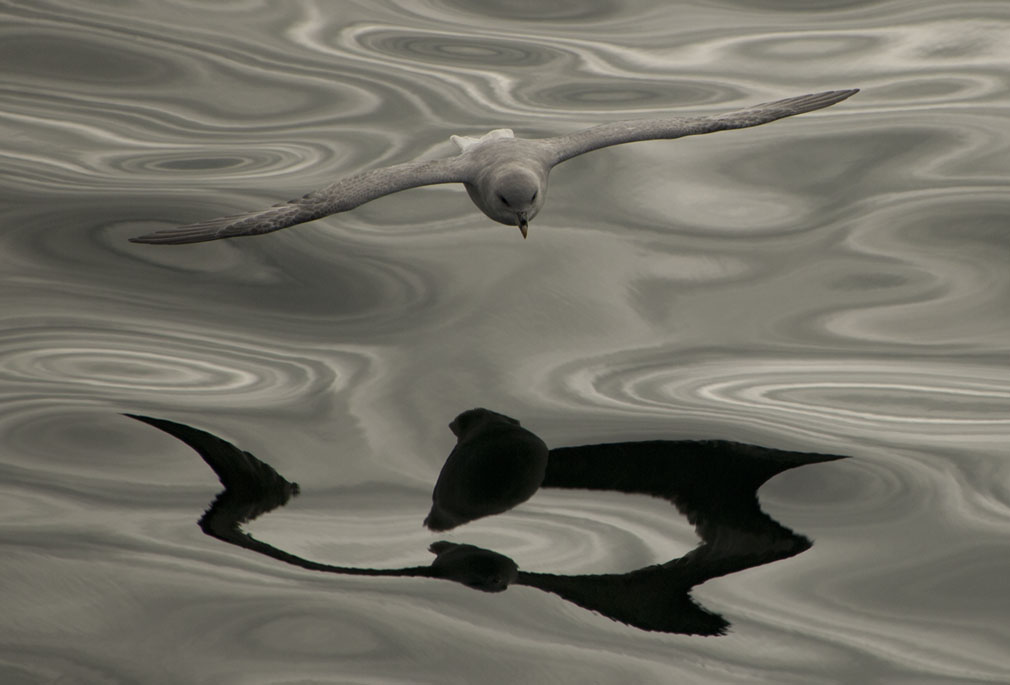[LUM#10] Fishing that starves seabirds
Industrial fishing is reducing the amount of fish available to feed seabirds, whose populations are collapsing. This is a warning sign about the state of the oceans, according to David Grémillet, an oceanographer at the Center for Functional and Evolutionary Ecology in Montpellier.

This could be called unfair competition. By catching more and more fish, humans are not leaving enough to provide a decent food supply for seabirds, which are dying out. To reach this conclusion, researchers evaluated competition between industrial fishing and seabirds around the world between 1970 and 2010 for the first time.
"To map fish catches across all oceans and determine precisely how much fish is being caught, we relied on data from 'The Sea Around Us' project led by Daniel Pauly at the University of British Columbia," explains David Grémillet. This colossal project took 20 years to complete and has produced data that is more reliable than the official statistics provided bythe Food and Agriculture Organization of the United Nations (FAO).
A colossal project
At the same time, researchers collected data on 276 species of seabirds, representing 60% of the species found on the planet. In total, more than a billion birds were tracked. "By studying their breeding areas, diet, and weight, we were able to estimate the amount of fish consumed by seabirds, " explains the oceanographer.
By cross-referencing these two databases, David Grémillet and his colleagues atthe University of British Columbia in Canada andthe University of Aberdeen in Scotland were able to assess the competition between fishermen and seabirds. Their findings are clear: fishing is starving seabirds in every ocean around the globe. "Between 1970-1989 and 1990-2010, the average annual catch of bird prey by fisheries increased from 59 to 65 million tons," explains the researcher. "Between these two periods, the annual food consumption of birds decreased from 70 to 57 million tons."
Birds under pressure
This competition has serious consequences for seabirds. "Since 1950, seabird populations have declined by 70%, " laments the oceanographer. Penguins, terns, frigatebirds, and boobies are all seeing their numbers drop. These animals are particularly vulnerable because they are already under severe pressure. "Seabirds are suffering from the destruction of their breeding habitats by human activities, they are being decimated by invasive species such as rats and cats, they are victims of accidental capture by fishing gear, and they are enduring the effects of pollution and global warming. Competition with fishermen for food adds yet another pressure, " explains David Grémillet .
To alleviate this pressure and leave more fish for birds, researchers recommend prioritizing a ban on minotier fishing, which involves catching small pelagic fish such as sardines and anchovies to process them into oil and meal used to feed farmed salmon and chickens, among other animals. This practice alone accounts for 25% of fish catches, "an ecological disaster but also an ethical scandal, as these fish should be used to feed people in the countries where they are caught, particularly in Africa," asserts David Grémillet.
The second recommendation from specialists is to enforce fishing quotas. "Europe is failing in this area. Pressure from the fishing lobby is so intense that some countries, such as France, prefer to pay fines rather than enforce the quotas that have been set, " explains David Grémillet.
Political will
Finally, the oceanographer recommends increasing the number of marine protected areas where fish populations can regenerate. "Studies show that if international waters were converted into marine protected areas, fish stocks would increase and fishermen would be able to catch more."
"All these recommendations depend on political will," the researcher emphasizes. These solutions are all the more important given that seabirds are sounding the alarm about the health of the entire ocean ecosystem. "Seabirds are an umbrella species, an indicator of the health of the ocean. If they are dying out, it means that the entire health of the ocean is at risk, " warns David Grémillet.
David Grémillet is the author of the first biography of Daniel Pauly, Un océan de combat (An Ocean of Struggle), published by Wildproject in May 2019.
Between science and politics, the novelistic life of one of the greatest whistleblowers of our time.
Find UM podcasts now available on your favorite platform (Spotify, Deezer, Apple Podcasts, Amazon Music, etc.).